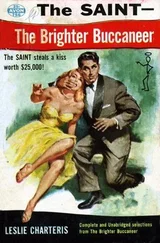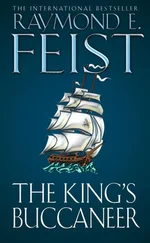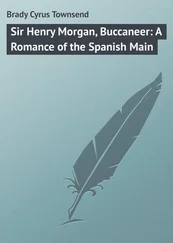Rolf Boldrewood - A Modern Buccaneer
Здесь есть возможность читать онлайн «Rolf Boldrewood - A Modern Buccaneer» — ознакомительный отрывок электронной книги совершенно бесплатно, а после прочтения отрывка купить полную версию. В некоторых случаях можно слушать аудио, скачать через торрент в формате fb2 и присутствует краткое содержание. ISBN: , Жанр: foreign_antique, foreign_prose, на английском языке. Описание произведения, (предисловие) а так же отзывы посетителей доступны на портале библиотеки ЛибКат.
- Название:A Modern Buccaneer
- Автор:
- Жанр:
- Год:неизвестен
- ISBN:http://www.gutenberg.org/ebooks/35431
- Рейтинг книги:3 / 5. Голосов: 1
-
Избранное:Добавить в избранное
- Отзывы:
-
Ваша оценка:
- 60
- 1
- 2
- 3
- 4
- 5
A Modern Buccaneer: краткое содержание, описание и аннотация
Предлагаем к чтению аннотацию, описание, краткое содержание или предисловие (зависит от того, что написал сам автор книги «A Modern Buccaneer»). Если вы не нашли необходимую информацию о книге — напишите в комментариях, мы постараемся отыскать её.
A Modern Buccaneer — читать онлайн ознакомительный отрывок
Ниже представлен текст книги, разбитый по страницам. Система сохранения места последней прочитанной страницы, позволяет с удобством читать онлайн бесплатно книгу «A Modern Buccaneer», без необходимости каждый раз заново искать на чём Вы остановились. Поставьте закладку, и сможете в любой момент перейти на страницу, на которой закончили чтение.
Интервал:
Закладка:
A Modern Buccaneer
CHAPTER I
MY FIRST VOYAGE
Born near Sydney harbour, nursery of the seamen of the South, I could swim almost as soon as I could walk, and sail a boat at an age when most children are forbidden to go near the water. We came of a salt-water stock. My father had been a sea-captain for the greater part of his life, after a youth spent in every kind of craft, from a cutter to a man-of-war. No part of the habitable globe was unfamiliar to him: from India to the Pole, from Russia to the Brazils, from the China Sea to the Bight of Benin – every harbour was a home.
He had nursed one crew frost-bitten in Archangel, when the blankets had to be cut up for mittens; had watched by the beds of another, decimated by yellow fever in Jamaica; had marked up the "death's-head and cross-bones" in the margin of the log-book, to denote the loss by tetanus of the wounded by poisoned arrows on Bougainville Island; and had fought hand to hand with the stubborn Maories of Taranaki. Wounds and death, privation and pestilence, wrecks and tempests were with him household words, close comrades. What were they but symbols, nature-pictures, the cards dealt by fate? You lost the stake or rose a winner. Men who had played the game of life all round knew this. He accepted fortune, fair or foul, as he did the weather – a favour or a force of nature to be enjoyed or defied. But to be commented upon, much less complained of? Hardly. And as fate had willed it, the worn though unwearied sea-king had seen fit to heave anchor, so to speak, and moor his vessels – for he owned more than one – in this the fairest haven of the southern main. Once before in youth had he seen and never forgotten the frowning headlands, beyond which lay so peerless a harbour, such wealth of anchorage, so mild a clime, so boundless an extent of virgin soil; from which he, "a picked man of countries," even then prophesied wealth, population, and empire in the future.
Here, then, a generation later, he brought his newly-wedded wife. Here was I, Hilary Telfer, destined to see the light.
From the mid-city street of Sydney is but a stone's throw to the wharves and quays, magnificent water-ways in which those ocean palaces of the present day, the liners of the P. and O. and the Orient, lie moored, and but a plank divides the impatient passenger from the busy mart. Not that such stately ships were visitors in my school-boy days. Sydney was then a grass-grown, quiet seaport, boasting some fifty thousand inhabitants, with a fleet of vessels small in size and of humble tonnage.
But, though unpretending of aspect, to the eager-hearted, imaginative school-boy they were rich as Spanish galleons. For were they not laden with uncounted treasure, weighed down with wealth beyond the fabled hoards of the pirates of the Spanish Main, upon whose dark deeds and desperate adventures I had so greedily feasted?
Each vessel that swept through the Heads at midnight, or marked the white-walled mansions and pine-crowned promontories rise faintly out of the pearl-hued dawn, was for me a volume filled with romance and mystery. Sat there not on the forecastle of that South Sea whaler, silent, scornful, imperturbable, the young Maori chief, nursing in his breast the deep revenge for a hasty blow, which on the return voyage to New Zealand and the home of his tribe was to take the form of a massacre of the whole ship's company?
Yes, captain and officers, passengers and crew, every man on that ship paid the death penalty for the mate's hard word and blow. The insult to a Rangatira must be wiped out in blood.
The trader of the South Sea Islands was a marine marvel which I was never weary of studying.
I generally managed to make friends with one or other of the crew, who permitted me to explore the lower deck and feed my fancy upon the treasures from that paradise with which the voyager from an enchanted ocean had surely freighted his vessel. Strange bows and arrows – the latter poison-tipped, as I was always assured, perhaps as a precautionary measure – piles of shaddocks, tons of bananas, idols, skulls, spears, clubs, woven cloth of curious fabric, an endless store of unfamiliar foreign commodities.
Among the crew were always a few half-castes mingled with the grizzled, weather-beaten British sea-dogs. Perhaps a boat's crew of the islanders themselves, born sailors, and as much at home in water as on land.
Seldom did I leave, however unwillingly, the deck of one of these fairy barques, without registering a vow that the year in which I left school should see me a gay sailor-boy, bound on my first voyage in search of dangerous adventures and that splendidly untrammelled career which was so surely to result in fortune and distinction.
Then the whaleships! In that old time, Sydney harbour was rarely without a score or more of them. In their way they were portents and wonders of the deep. Fortune failed them at times. The second year might find them far from full of the high-priced whale-oil. The capricious cetacean was not to be depended upon in migration from one "whaling ground" to another. Sometimes a "favourite" ship – lucky in spite of everything – would come flaunting in after an absence of merely eleven or twelve months – such were the Florentia and the Proteus – full to the hatches, while three long years would have elapsed before her consort, sailing on the same day and fitted up much in the same way, would crawl sadly into Snail's or Neutral Bay, battered and tempest-tossed, but three-quarter full even then, a mark for the rough wit of the port, to pay off an impoverished crew and confront unsmiling or incredulous owners.
Every kind of disaster would have befallen her. When she got fast to a ninety-barrel whale, her boats would be stoven in. When all was well, no cheery shout of "There she spouts!" would be heard for days. Savage islanders would attack her doggedly, and hardly be beaten off. Every kind of evil omen would be justified, until the crew came to believe that they were sailing with an Australian Vanderdecken, and would never see a port again.
The grudging childish years had rolled by, and now I was seventeen years of age – fitted, as I fully believed, to begin the battle of life in earnest, and ardent for the fray. As to my personal qualifications for a life on the ocean wave, and well I knew no other would have contented me, let the reader judge. At the age when tall lads are often found to have out-grown their strength, I had attained the fullest stature of manhood; wide-chested and muscular, constant exercise with oar and sail had developed my frame and toughened my sinews, until I held myself, with some reason, to be a match in strength and activity for most men I was likely to meet.
In the rowing contests to which Australians of the shore have always been devoted, more particularly the privileged citizens of Sydney, I had always taken a leading part. More than once, in a hard-fought finish, had I been lifted out fainting or insensible.
My curling fair hair and blue eyes bore token of our Norse blood and Anglo-Norman descent. The family held a tradition that our surname came from Taillefer, the warrior minstrel who rode in the forefront of Duke William's army at Hastings. Strangely, too, a passionate love of song had always clung to the race. "Sir Hilary charged at Agincourt," as saith the ballad. Roving and adventure ran in the blood for generations uncounted.
For all that trouble arose when I announced my resolve. My schoolmates had settled down in the offices of merchants, bankers, and lawyers, why could not I do the same? My mother's tears fell fast as she tried in vain to dissuade me from my resolution. My father was neutral. He knew well the intensity of the feeling. "If born in a boy," he said, "as it was in me, it is his fate – nothing on earth can turn him from it; if you stop him you will make a bad landsman and spoil a good sailor. Let him go! he must take his chance like another man. God is above the wave as over the earth. If it be his fate, the perils of the deep will be no more than the breezes of the bay."
Читать дальшеИнтервал:
Закладка:
Похожие книги на «A Modern Buccaneer»
Представляем Вашему вниманию похожие книги на «A Modern Buccaneer» списком для выбора. Мы отобрали схожую по названию и смыслу литературу в надежде предоставить читателям больше вариантов отыскать новые, интересные, ещё непрочитанные произведения.
Обсуждение, отзывы о книге «A Modern Buccaneer» и просто собственные мнения читателей. Оставьте ваши комментарии, напишите, что Вы думаете о произведении, его смысле или главных героях. Укажите что конкретно понравилось, а что нет, и почему Вы так считаете.












